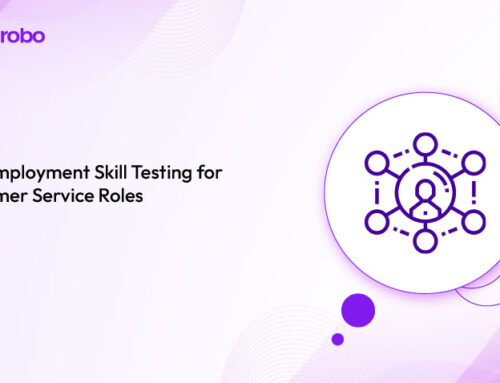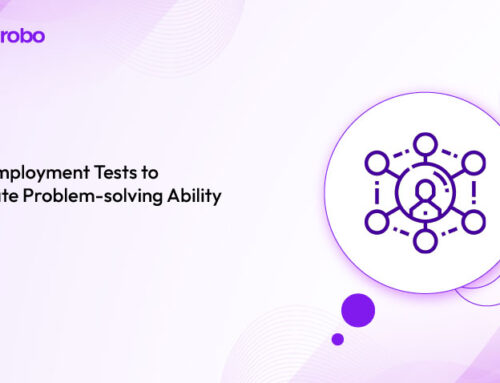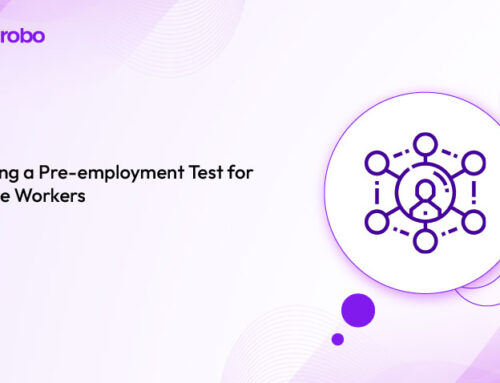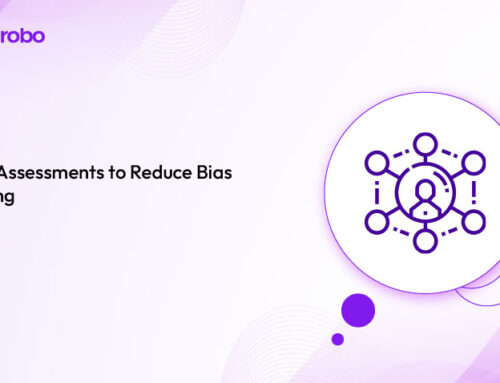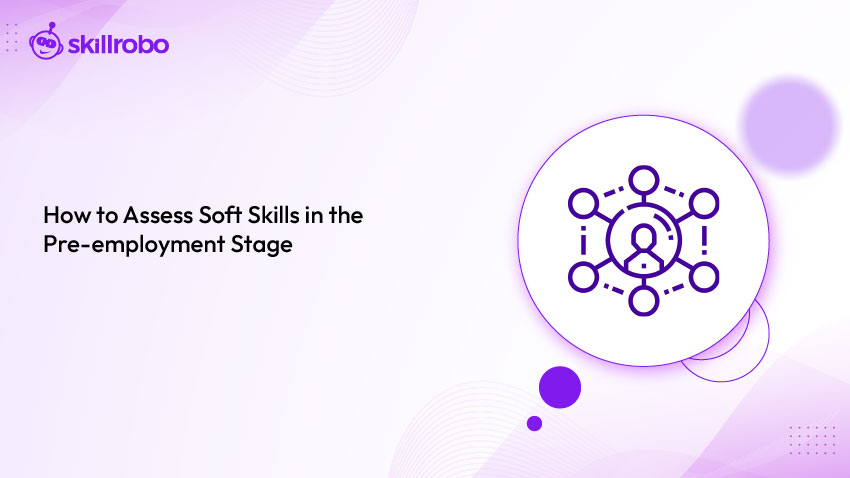
Key Takeaways
- Soft skills assessments identify traits like teamwork and empathy, ensuring hires align with culture and excel in collaboration across roles.
- Objective MCQ and descriptive tests boost hiring accuracy, revealing interpersonal strengths vital for long-term success and team harmony.
- AI-driven platforms streamline recruitment, crafting tailored questions to spotlight candidates with standout communication and adaptability skills.
- Fair evaluations eliminate bias, fostering diverse talent pools and creating equitable opportunities for inclusive, dynamic workplaces.
Why Soft Skills Are Your Hiring Superpower
Hiring is like casting a play—you need talent who not only knows their lines but also vibes with the ensemble. Soft skills like communication, empathy, and resilience aren’t just bonuses; they’re the heartbeat of great teams. A candidate might nail spreadsheets, but if they can’t defuse a tense meeting or adapt to a pivot, projects fumble and spirits sag.
Interviews often bank on charm, not proof of teamwork or grit. Pre-employment assessments change that, testing real traits like conflict resolution or flexibility through MCQs and descriptive questions. A 2023 study found that 89% of hiring failures stem from weak soft skills. Let’s dive into how to assess these dealmakers before hiring, building teams that shine together and thrive under pressure.
Pinpoint the Soft Skills That Matter
Every role leans on different interpersonal strengths—customer service needs warmth, and leadership needs decisiveness. Zeroing in on the right traits keeps your test sharp, avoiding hires who dazzle in talks but flop in teams. A loose assessment might clear someone who disrupts workflows, draining energy. Here’s how to lock in the soft skills that fuel success.
1. Focus on Role-Specific Traits
Start with the job’s soul—empathy for client-facing roles, and organization for coordinators. Ask managers what clicks, like soothing upset customers or steering meetings. MCQ tests might quiz empathy scenarios, while descriptive questions ask for prioritization examples. This ensures hires bring the exact interpersonal juice needed, meshing with the role’s demands and keeping teams humming smoothly from day one.
2. Test Communication Clarity
Clear talk binds teams. MCQs on phrasing feedback or descriptive tasks, like summarizing a project hiccup, reveal who conveys ideas with ease. A sales rep who nails this wins clients; a manager keeps staff aligned. Poor communicators muddle goals, stalling progress. Testing clarity spots hires who bridge gaps, vital for roles needing constant interaction or cross-team sync communication skills.
3. Gauge Teamwork Potential
Collaboration drives wins—solo stars can’t cut it. Descriptive questions, like resolving a group delay, show who lifts others up. MCQs might test sharing credit in scenarios. A hire who builds synergy boosts projects, whether in office huddles or virtual chats. Weak team players spark friction, derailing goals. This focus finds candidates who make collective magic happen.
4. Check Adaptability Under Fire
Work’s a moving target—new priorities, sudden shifts. MCQs on handling disruptions or essays about past pivots spot resilient types. A nurse adapting to a staff shortage or a marketer tweaking a failed campaign shows grit. Stiff hires crumble under change, slowing teams. Testing flexibility ensures candidates thrive in roles where agility keeps things rolling, no matter the curveball.
5. Measure Emotional Intelligence
Emotional smarts keep workplaces human. Descriptive tasks, like navigating a coworker clash, test empathy and self-control. MCQs on spotting team stress gauge awareness. These hires soothe tensions, crucial for client roles or tight crews. Low-EQ candidates breed conflict, tanking morale. This check finds people who foster trust and harmony, building teams that gel.
Design Assessments That Hit the Mark
A top soft skills test mirrors real work—think guiding a tense call, not generic quizzes. Sloppy ones misjudge traits, like reading shyness as weak leadership. For a service role, test patience, not unrelated flair. Here’s how to craft assessments that uncover interpersonal gems.
1. Build Job-Relevant Scenarios
Create MCQs or descriptive questions tied to the gig—like handling a client rant for support staff. A leadership test might ask candidates to describe rallying a demotivated team. These setups show how empathy or decisiveness plays out, proving who’s ready for daily challenges. A firm once missed a star by testing irrelevant skills—real scenarios keep tight teamwork evaluations.
2. Ask Behavioral Questions
Get candidates to share real stories—like solving a team dispute. Descriptive answers reveal leadership or collaboration in action, backed by evidence. MCQs can probe how they’d prioritize in past roles. This digs deeper than hypotheticals, showing proven soft skills. A hire’s past predicts their future, helping you spot those who’ll shine in crunch time without guesswork.
3. Keep Questions Clear and Focused
Vague prompts—like “be a leader”—flop. Ask “How would you motivate a struggling colleague?” for descriptive tasks or use MCQs with precise options, like choosing conflict responses. Clarity lets candidates show their true colors, not wrestle with bad wording. A muddled test once sank a great hire’s score—sharp questions ensure you’re judging skill, not confusion.
4. Balance Test Time and Depth
Long tests bore applicants—aim for 20–30 minutes. MCQs on adaptability plus a short essay on teamwork hit key traits without dragging. Short, punchy assessments keep candidates engaged, gathering rich data fast. A drawn-out test once lost top talent to frustration—concise design respects time while catching what matters for role fit.
Harness Tech to Boost Evaluations
Smart tools make soft skills tests sharper and faster. AI tailors questions, secure systems lock in honesty, and analytics flag top performers. A 2024 report found that 68% of firms with tech assessments hire more diverse teams. MCQ and descriptive on Skillrobo nails this, streamlining hiring with precision.
1. Automate with AI-Powered Questions
AI crafts role-specific MCQs—like gauging empathy for nurses—or descriptive tasks, like explaining a deadline miss. These questions zero in on job needs, cutting prep time and dodging generic traps. Tailored tests probe real interpersonal skills, ensuring hires match the role’s human demands, not just look good on paper.
2. Analyze Results in Real Time
Instant analytics rank traits—like conflict resolution—from MCQ or essay answers. Quick data shows who excels at team motivation, speeding picks in big pools. A firm once waited weeks to sort results—analytics fixes that, letting you focus on stars for urgent or high-stakes roles.
3. Secure Remote Testing
Proctoring catches odd moves—like copy-pasting answers—keeping tests legit. For a sales role, this confirms persuasion skills are real. Secure systems let candidates test anywhere, giving you trust in scores. Without it, you’re gambling on honesty, risking skewed views of soft skills in virtual setups.
Keep Fairness First
Fair tests aren’t optional—they’re the foundation of great hires. Bias or murky questions can alienate talent, shrinking your pool. Objective MCQs and descriptive tasks focus on skills, like calming a tense call, not backgrounds. Here’s how to ensure every candidate gets a square shot.
1. Cut Bias from the Core
Skip questions tied to specific vibes—like extroversion for teamwork. Neutral MCQs on collaboration or essays on feedback handling let all shine. A biased test once pushed away diverse hires—fair design opens doors, ensuring soft skills like empathy stand out, no matter who’s answering eliminating bias.
2. Score with Consistency
Use one rubric—like clarity in essays—for everyone. Uniform standards stop subjective swings, so a quiet candidate isn’t docked for teamwork. This fairness shows applicants they’re judged on ability, not flair, building confidence and pulling in varied talent for stronger teams.
3. Be Crystal Clear Upfront
Muddy rules trip people up—“Answer this in 10 minutes” works; “Do something interpersonal” doesn’t. Clear MCQ options and essay prompts set expectations, letting candidates focus on skills. Transparency keeps diverse applicants engaged, boosting completion and your rep as a fair shop streamlining recruitment.
Sharpen Tests with Data
Tests aren’t one-and-done—are your hires clicking? Are candidates finishing? Data spots gaps, keeping assessments fresh as jobs evolve. This ensures your hiring nails candidates who stick and sparkle.
1. Track How Hires Perform
Do top scorers shine? Match MCQ empathy scores to client feedback or essay clarity to team wins. If they sync, your test’s golden; if not, tweak questions. A mismatch once led to bad fits—data keeps hires on point candidate assessment tools.
2. Watch Completion Trends
Low finishes scream trouble—maybe essays are too vague. High rates signal ease. Simplify MCQs or prompts, like for retail roles, to keep folks in. A clunky test once lost stars—data tweaks ensure candidates stay hooked and you get the full picture.
3. Update for Job Shifts
Work changes—remote teams need new collab skills. Add MCQs on virtual sync or essays on hybrid challenges. Stale tests miss modern needs, like a firm stuck on old-school leadership. Updates align hires with today’s workplace, keeping teams future-ready.
Conclusion
Soft skills assessments redefine hiring, spotlighting communication, empathy, and resilience to build teams that don’t just work—they thrive. MCQ and descriptive tests cut through interview haze, proving who can connect, adapt, and inspire in real-world moments.
From crafting scenarios that mirror daily challenges to refining with data, these tools ensure hires fit your culture and fuel long-term success. With Skillrobo streamlining every step, you’re not just filling roles—you’re forging workplaces that hum with collaboration and grit. Ready to hire talent who truly clicks? Leap and sign up today to shape your dream team.



